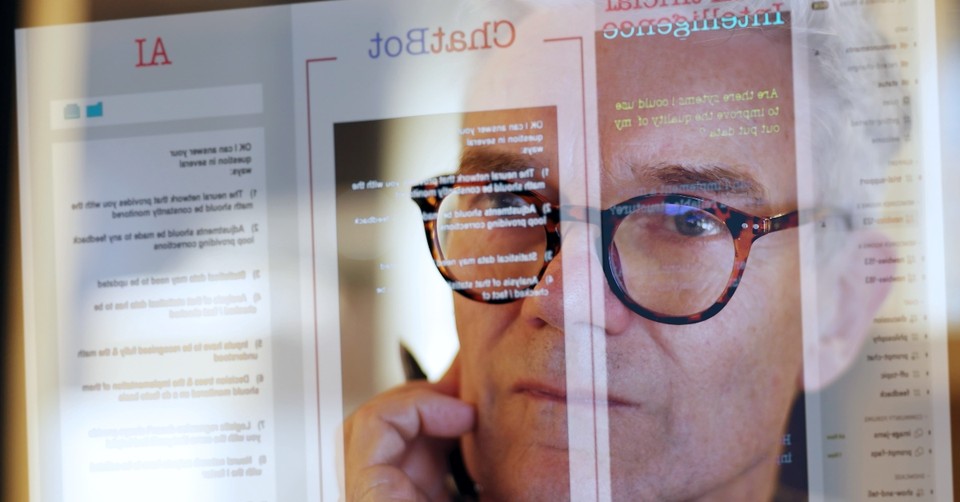Why Christians Must Protect Real Relationships in an Age of AI

Sonny, a hybrid school counseling chatbot, has taken over several school districts across the United States as the uprise in artificial intelligence in our world continues. According to Sonar Mental Health, Sonny's developers, it's a "personal wellbeing companion" that K-12 students can chat with "about literally anything."
The chatbot, which is available to 4,500 middle and high school students, uses a "human-in-the-loop" model, where humans with backgrounds in psychology and social work review chats and take cues from AI.
According to Wall Street Journal columnist Julie Jargon, what makes this chat distinct from pure AI is its human element.
"Humans with backgrounds in psychology, social work and crisis-line support are always in the mix, reviewing the chats and taking cues from AI to inform their own replies to students," she wrote.
Why Real Relationships Still Matter in a Digital World
There is no doubt that AI is here to stay and that it possesses impressive capabilities, but we must be reminded that it is not God, nor should it replace actual relationships. Authentic connection—not something artificial—is what truly fosters meaningful relationships, especially for young people whose lives are deeply shaped by them. Growing up without parents in the picture or toxic parents can result in emotional scarring and abandonment issues that later affect whatever interpersonal relationships they have down the line— whether it's friends or romantic relationships.
In recent times, we have seen the presence of AI in the context of the church. For instance, controversy erupted when a Catholic church based in Switzerland placed an AI version of Jesus Christ in its confessional booth as part of a social experiment.
Marco Schmid, a theologian with Peter's Chapel, said that a majority of the people who interacted with the AI Jesus said it was a "spiritual experience."
Meanwhile, South Carolina megachurch pastor Ron Carpenter created and developed an AI version of himself in which congregants can have "personalized, 1-on-1 interactions" through his newly developed prayer app.
He displayed how the app worked by using an example of someone feeling sick and reaching him on the app for prayer.
In response, the AI-generated version of the pastor will proceed to pray, saying, "Hey there, I'm sorry to hear you're not feeling well. Let's take a moment to pray together. Heavenly Father, I thank you that you know us and hear us. Right now, I lift up my friend to you. I ask for your healing touch to be upon."
In similar fashion, these faith-based AI programs and the Sonny chatbot have been developed as a means for people to seek out help or cultivate interactions. Despite its capabilities and accessibilities, these technologies should never replace real interpersonal connections. It does not matter how well an AI can mimic a person, it is still not a person. It does not matter how much information it contains; it is still an AI. For Christians, that truth should resonate even further in realizing that AI is not God, lest we make an idol out of it.
The Body of Christ Was Never Meant to Be Artificial
In Scripture, we know that believers are the body of Christ while Christ is the Head of the church. As the body of Christ, we are created for fellowship with one another.
"Just as a body, though one, has many parts, but all its many parts form one body, so it is with Christ. For we were all baptized by one Spirit so as to form one body—whether Jews or Gentiles, slave or free—and we were all given the one Spirit to drink," -Corinthians 12:12-13.
In Christ, we are one in Him and in each other, regardless of ethnicity or social status. We are a spiritual family under our Heavenly Father and are given the same Holy Spirit who sanctifies us so that we would reflect Christ. Overall, we understand the importance of interpersonal connection as we fellowship with one another for the Body of Christ, which is relational at its core. Christians also recognize the importance of loving one another in obeying the second of the greatest commandments, which is "love your neighbor as yourself," which goes hand in hand with the greatest and most important commandment, "Love the Lord your God with all your heart, with all your soul, and with all your mind" (Matthew 22:37–40). Later in John's epistle, he stresses that loving God but not loving your neighbor is a liar (1 John 4:20).
Moreover, the fellowship of the saints is reflective of the eternal relationship between the Holy Trinity— Father, Son, and Holy Spirit— who were all present in the creation of humanity (Genesis 1:26). Therefore, we can never accept AI as a replacement for fellowship because that is not how we're created. If anything, the presence of such technological developments should further prompt us to cultivate and maintain relationships with one another so that we would not be caught up in what I see, sadly, would become a trend where people would rather turn to an AI than a real person.
I understand that no relationship is perfect, as no person is perfect, but even the pain and strife of relationships should not prompt one to jettison them all together for the sake of an artificial one in isolation. Eventually, that "relationship" with an AI will fade and leave one empty, realizing it can never bring the true joy that actual relationships can bring, whether with other people or especially with the Lord.
Photo Credit: ©iStock/Getty Images Plus/Laurence Dutton

Originally published April 02, 2025.





